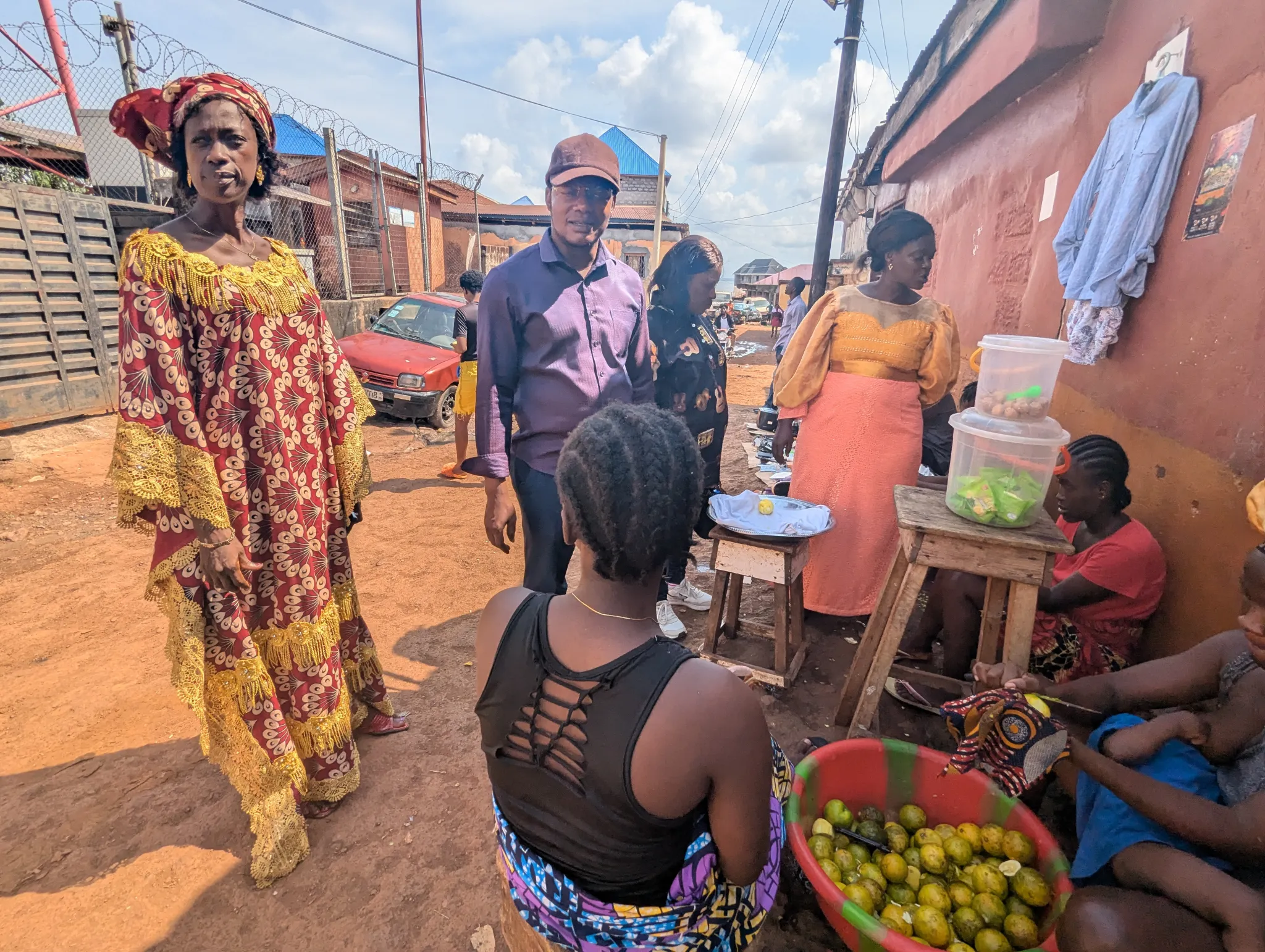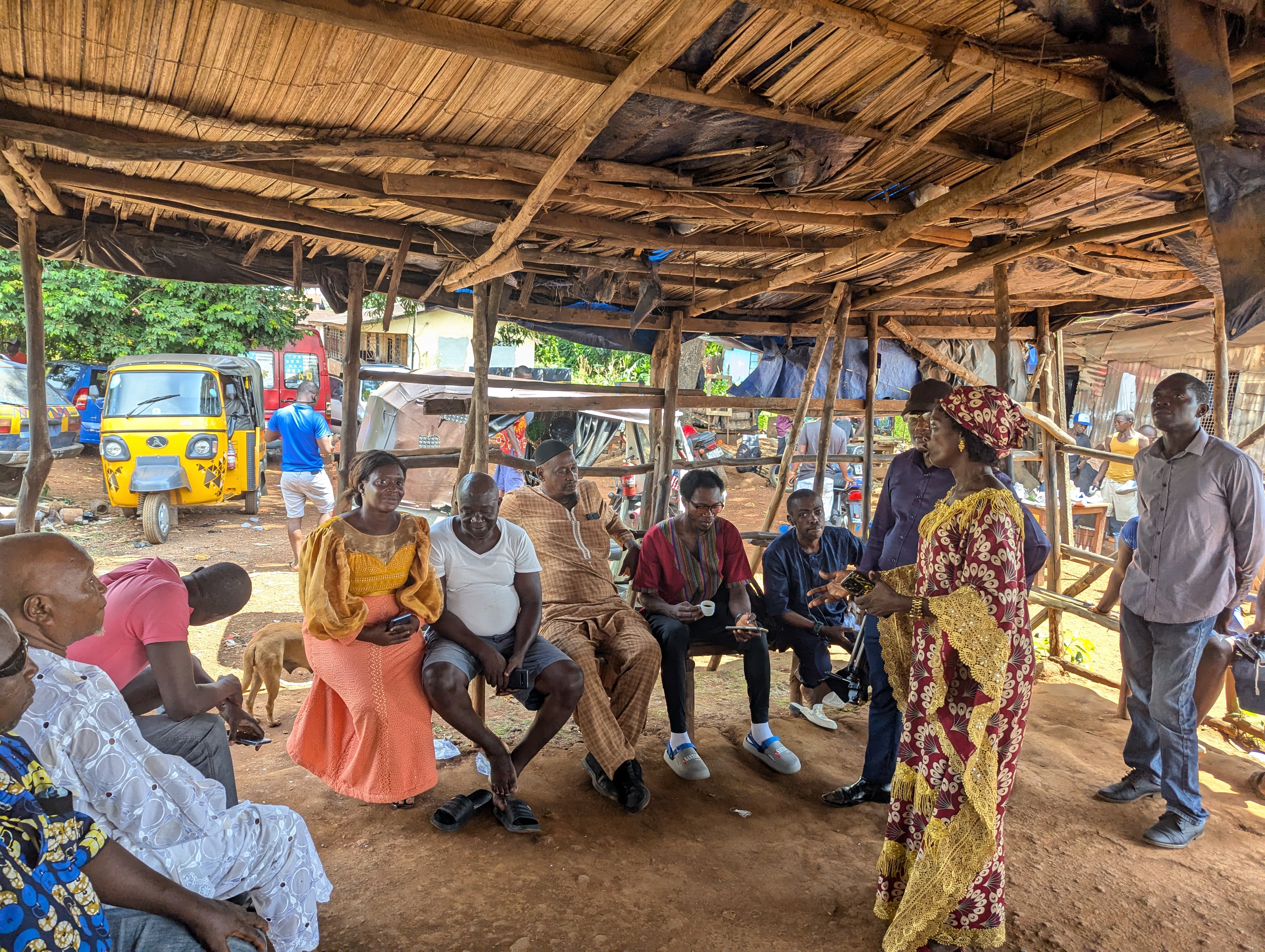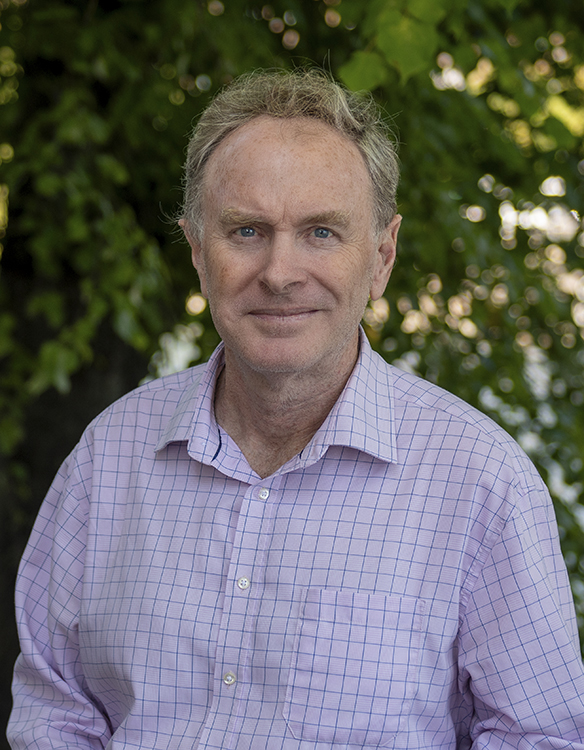After two years of supporting Sierra Leone democracy, a new era beckons for International IDEA

‘International IDEA’s involvement was a turning point for us, it has injected life into the commission and catapulted us in terms of visibility’ said Abdul Rahman Conteh, Executive Secretary of National Commission for Democracy, a state organization which promotes democratic governance and participation. He proudly recounted how President Julius Maada Bio referenced his organization for the first time in a speech to parliament this year.
Emerging from a 11-year-old civil war, Sierra Leone has held five elections since the war’s end in 2002. The last election was widely seen as the least violent, is a testament to the work of International IDEA and its partners in fostering governance and civil discourse among parties, election officials and voters.
Challenges remain—the 2023 election was disputed by the main opposition party and some military officers staged a failed coup in 2023, underlying how the democratic process cannot be taken for granted. However, democracy groups believe the last two years of work with International IDEA and its partners have provided a platform to grow.
‘Our hope now is that International IDEA stays with us for the next election cycle’, said Abubakarr Koroma, Electoral Commission for Sierra Leone’s Northern Region Oversight Commissioner.
International IDEA has been working on a two-year European Union-funded project to strengthen Sierra Leone’s democracy, including promoting reforms to political parties, encouraging women, youth and people with special needs in the electoral processes. The next 19-month project agreed by the EU will consolidate this progress.
Obstacles loom in a country with its share of bad luck. Hopes for a post-civil war economic dividend were hit by the 2014-2016 Ebola outbreak that killed thousands of citizens including health workers and discouraged investors, while the Covid-19 pandemic further cut household incomes—and this in a country where already more than two thirds of people live off subsistence agriculture.
Indeed, success so far is more impressive given the paucity of resources that pro-democracy institutions have. Some struggle to pay rent. Meetings are constantly interrupted by power cuts and the hum of generators is constant. Peeling paint and posters in darkened corridors testify to unrelenting tropical heat and humidity.
Nowhere is the challenge greater than with local councilor Agnes Marah, whose district covers more than 45,000 residents in Freetown’s Western Urban district. Strolling around the dirt streets strewn with rubbish and open sewers under a roasting midday sun, she discussed with dozens of constituents a raft of petitions for more access to water. Marah is part of an International IDEA-backed initiative, along with the 50-50 gender rights group that has trained hundreds of elected women on issues from campaigning on social media to writing grant applications.

Known locally as the ‘iron lady’, Marah talked about how relatives pushed against her political ambitions, of online bullying and of cases of car tires of female councilors being slashed. But now she is known as a diligent politician, spending much of her time finding training for young women, who fund their studies through her road sweeping project.
‘International IDEA and 50-50 support have been key for me’, Marah said. ‘They have given me the confidence and the training to be a good councilor.’
Progress towards stabilizing political parties has also been made. International IDEA helped the Political Parties Regulation Commission (PPRC), develop a guide for parties to set up conciliation mechanisms. This reform—dry and nuanced to an outsider—has reverberated around the political landscape. In the past, parties would easily splinter into diverse groups as internal conflicts spiraled into long drawn-out, polarizing, and expensive court cases.
‘Not only were the elections the most peaceful in recent memory, but intraparty conflicts have declined. It was International IDEA that helped us get about 1,200 political leaders together to train them on conflict resolution’, said PPRC’s Executive Secretary Olushogo David.
For Rev. Lahai, National Chaplain at the ruling Sierra Leone People’s Party, these mechanisms helped reduce national political tensions. ‘Intraparty conflicts quickly can become national issues. The conflict resolution guide has helped reduce these.’
Sheriff Barrie, Chairperson of the National Democratic Alliance, said he brought lessons from the guide to solve an internal party conflict which had been in the courts since 2012, as well as resolving long-running land dispute among the leaders of his Fulla tribe.
‘This training has undoubtedly cascaded into the political system and improved civil discourse’, said Ibrahim Sorie Sesay, an official at the of the opposition Citizens Democratic Party (CDP).
‘There are still challenges’, he added. ‘We need to institutionalize what we have learnt about conflict resolution, but we have the training guidance that International IDEA gave us. It is now on us to follow through’.
At the Electoral Commission for Sierra Leone, Koroma listed initiatives that International IDEA had supported—most importantly, a tool that allowed the commission to identify election, manage and mitigate risks. There were also smaller-scale initiatives like organizing football matches among the youth to foster community rather than polarization ahead of the election.
‘We are still on the lookout; things can be volatile’, said Independent Media Commission Executive Secretary Khalil Kalon. It must monitor some 200 radio stations —which are still the biggest source of news for Sierra Leone voters despite the growth in social media—for inflammatory speech and disinformation.
‘But we are growing in professionalism. There is more stability. We are ready to leverage these successes.




